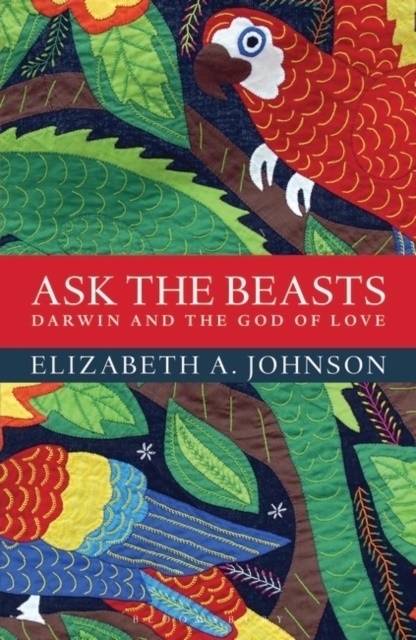Read more
Zusatztext What might have been a book review of Ask the Beasts: Darwin and the God of Love ... has becomethat and something more because of the quality of the book and the contemporary relevance of the issues with which it deals. Indeed, those issues are not only central to Christian faith and life, but also concern the threat that we humans now pose for all life on the planet ... It is the fruit of careful and detailed study, dialogue, tested judgements and conclusions across fields not commonly traversed by a theologian. It bears the mark of the deep and careful reflection of an accomplished theologian. Informationen zum Autor Elizabeth A. Johnson , C.S.J., is distinguished Professor of Theology at Fordham University. She has received numerous awards, including the Louisville Grawemeyer Award in Religion for She Who Is (1993), the American Academy of Religion Award for Excellence in the Study of Religion for Friends of God and Prophets (1999), and the Book Award of the College Theology Society for Truly Our Sister (2004). She was also the recipient of the John Courtney Murray Award of the Catholic Theological Society of America, the Jerome Award of the Catholic Library Association, and the Monika K. Hellwig Award of the Association of Catholic Colleges and Universities. Klappentext For millennia plant and animal species have received little sustained attention as subjects of Christian theology and ethics in their own right. Focused on the human dilemma of sin and redemptive grace, theology has considered the doctrine of creation to be mainly an overture to the main drama of human being`s relationship to God. What value does the natural world have within the framework of religious belief? The crisis of biodiversity in our day, when species are going extinct at more than 1,000 times the natural rate, renders this question acutely important.Standard perspectives need to be realigned; theology needs to look out of the window, so to speak as well as in the mirror. Ask the Beasts: Darwin and the God of Love leads to the conclusion that love of the natural world is an intrinsic element of faith in God and that far from being an add-on, ecological care is at the centre of moral life. Vorwort An examination of the relationship between faith in God and the concept of ecological care within a crisis of biodiversity. Zusammenfassung For millennia plant and animal species have received little sustained attention as subjects of Christian theology and ethics in their own right. Focused on the human dilemma of sin and redemptive grace, theology has considered the doctrine of creation to be mainly an overture to the main drama of human being`s relationship to God. What value does the natural world have within the framework of religious belief?The crisis of biodiversity in our day, when species are going extinct at more than 1,000 times the natural rate, renders this question acutely important. Standard perspectives need to be realigned; theology needs to look out of the window, so to speak as well as in the mirror. Ask the Beasts: Darwin and the God of Love leads to the conclusion that love of the natural world is an intrinsic element of faith in God and that far from being an add-on, ecological care is at the centre of moral life. Inhaltsverzeichnis Acknowledgements Preface 1 Beasts and Entangled Bank: A Dialogue 2 "When We Look..." 3 "Endless Forms Most Beautiful" 4 Evolution of the Theroy 5 The Dwelling Place of God 6 Free, Empowered Creation 7 All Creation Groaning 8 Bearer of Great Promise 9 Enter the Humans 10 The Community of Creation Notes Selected Bibliography Index ...

